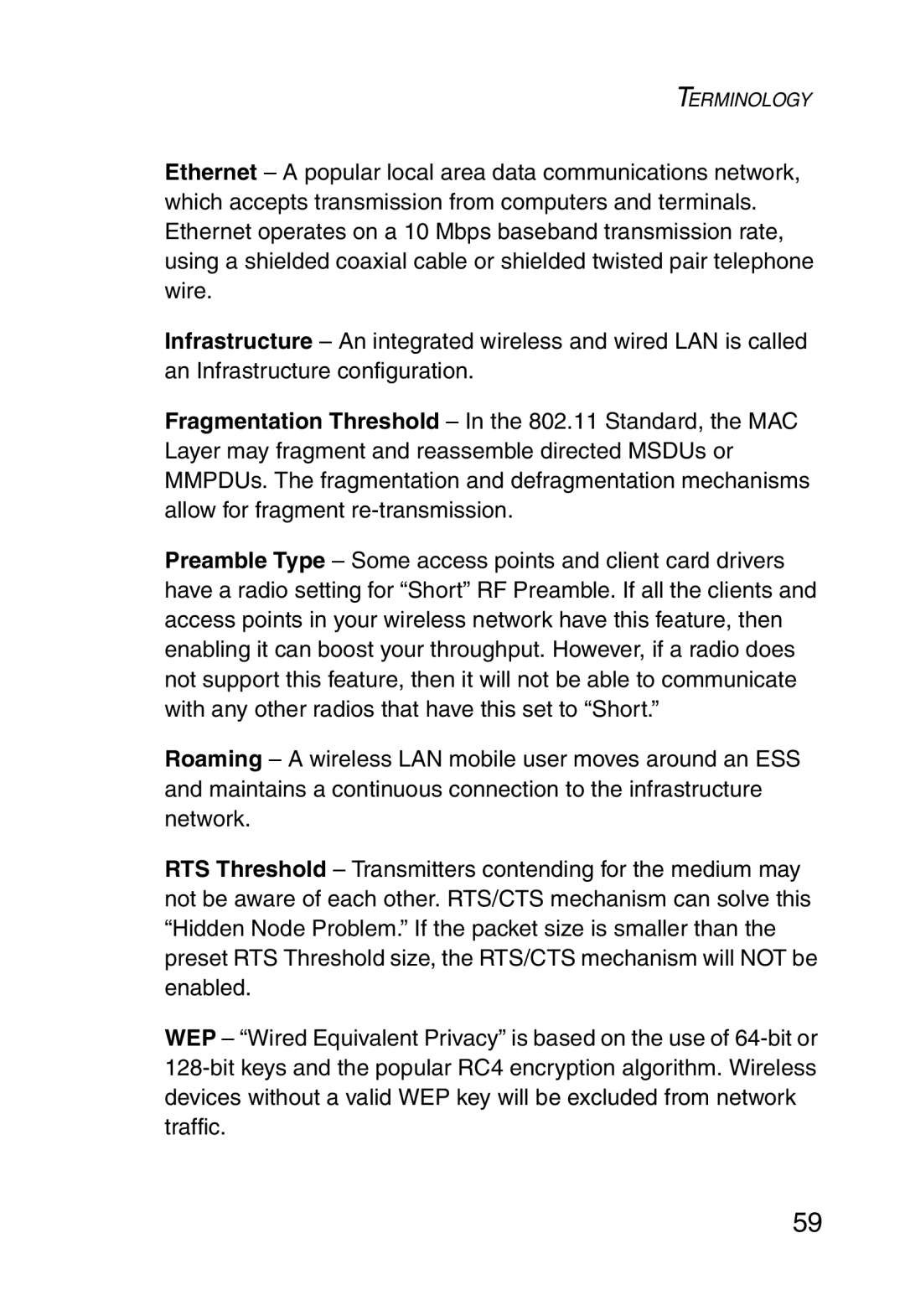TERMINOLOGY
Ethernet – A popular local area data communications network, which accepts transmission from computers and terminals. Ethernet operates on a 10 Mbps baseband transmission rate, using a shielded coaxial cable or shielded twisted pair telephone wire.
Infrastructure – An integrated wireless and wired LAN is called an Infrastructure configuration.
Fragmentation Threshold – In the 802.11 Standard, the MAC Layer may fragment and reassemble directed MSDUs or MMPDUs. The fragmentation and defragmentation mechanisms allow for fragment
Preamble Type – Some access points and client card drivers have a radio setting for “Short” RF Preamble. If all the clients and access points in your wireless network have this feature, then enabling it can boost your throughput. However, if a radio does not support this feature, then it will not be able to communicate with any other radios that have this set to “Short.”
Roaming – A wireless LAN mobile user moves around an ESS and maintains a continuous connection to the infrastructure network.
RTS Threshold – Transmitters contending for the medium may not be aware of each other. RTS/CTS mechanism can solve this “Hidden Node Problem.” If the packet size is smaller than the preset RTS Threshold size, the RTS/CTS mechanism will NOT be enabled.
WEP – “Wired Equivalent Privacy” is based on the use of
59
